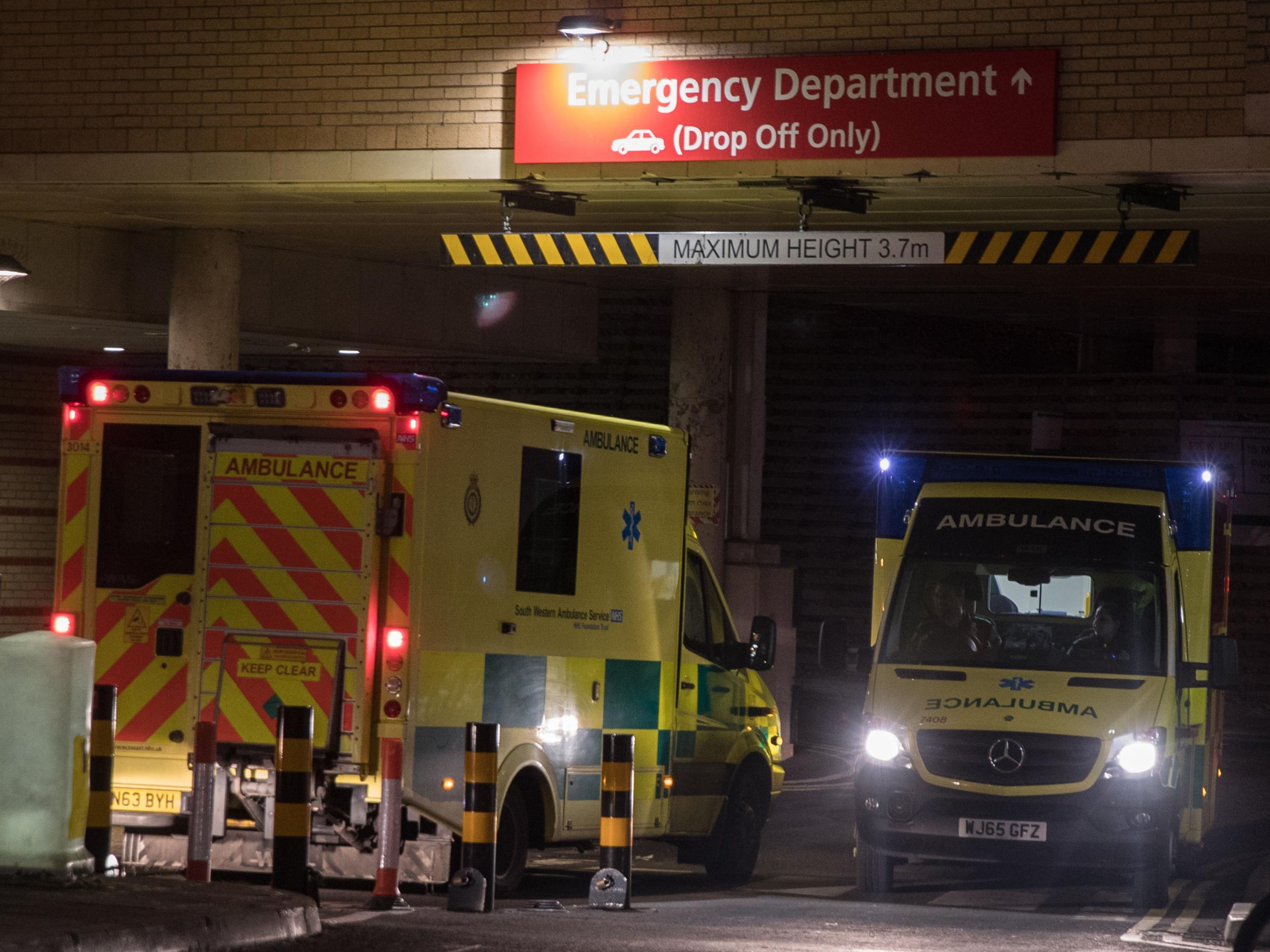Hospitals show signs of improvement but head into winter over budget
A&Es saw more patients within four hours than this time last year, despite rising admissions, performance figures show

NHS hospitals have warned they face a budget overspend of millions of pounds this winter as they attempt to deal with rising numbers of patients.
New data shows hospitals are delivering better performance this year than last but are predicted to go £127m more over budget that had been planned for 2017/18.
In England, more patients are being seen within waiting time targets despite growing levels of emergency admissions and demand, according to quarterly figures by NHS Improvement.
Hospital groups said improvements in A&E response times were “particularly encouraging” and said while the “slipping” financial position was worrying, any improvement on last year, when whistleblowers warned trusts were under pressure to cook their books, would be an achievement.
The data revealed that 3.43 million patients were seen within 18 weeks between July and September, compared with 3.36 million in the same period last year.
The NHS regulator also found that 90.2 per cent of A&E patients were being treated within four hours, just exceeding the target of 90 per cent.
But efforts to cut waiting times were hampered by an increase in the number of emergency admissions, which rose 3.4 per cent to 1.08 million over the second quarter of the year.
Problems are also being caused by the 168,000 beds, five per cent of NHS beds in England, that are still occupied by patients who can’t be discharged because they haven’t got suitable care in the community.
Chancellor Philip Hammond earmarked £1.3bn for social care in 2017/18 in the spring budget with the aim of cutting these delayed transfers of care.
The NHS had a target of reducing this figure to 3.5 per cent by September.
The lack of beds meant many trusts were limited in their ability to carry out elective surgery, NHS Improvement's report found.
Hospitals and medical centres across the country also faced financial difficulty, with NHS trusts and foundation trusts predicting a deficit of £623m, which was £127m more than initially set out.
However there was a reported drop of £119m spent on bank and agency staff, putting trusts and foundation trusts on course to remain within their £2.5bn budget for temporary staff.
NHS Improvements’ chief executive Jim Mackey warned that winter would be “difficult”, saying: "Despite providers of NHS care being under immense pressure, they have done better for both patients and taxpayers this quarter.
"Based on this quarter's results, the combined end-of-year deficit for hospitals in England will be worse than planned. While we are working across the NHS to prepare for winter pressures, they may be difficult and will place the system under even greater pressure.
Chief executive of NHS Providers, Chris Hopson, said it was to trusts' “enormous credit” that they have responded to growing demand by treating more patients than ever.
“It is particularly encouraging to see the improvement in A&E response times,” he said. But this would be hard to maintain and the annual targets were likely to be missed, Mr Hopson added that given the continued problems of delays: “The additional £1 billion allocated for social care in the spring budget has not had the effect on DTOCs that we had hoped to see.”
And he warned the budget position could slip further over winter.
Meanwhile, Jonathan Ashworth, Labour’s Shadow Health Secretary, said this was the second NHS official warning about underfunding in as many weeks, after NHS England chief Simon Stevens said the NHS needed the £350m pledged on the Vote Leave Bus.
“The warnings of the dire consequences of underfunding from Mr Stevens and Mr MacKay should not be dismissed by Downing Street.
“A repeat of the winter we have witnessed last year would be totally unacceptable. Next week’s Budget must urgently bring forward a substantial funding package that places our health service on a sustainable footing for years to come.”
Additional reporting from PA
Join our commenting forum
Join thought-provoking conversations, follow other Independent readers and see their replies
Comments
Bookmark popover
Removed from bookmarks